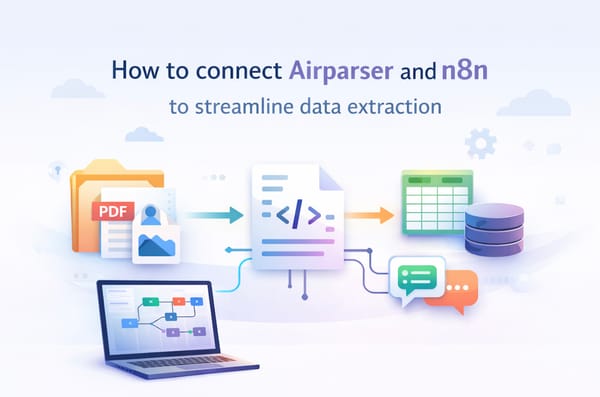What is Resume Parsing? How Does CV/Resume Parser Work?

Resume parsing is a technology that extracts key information from job applicants' resumes. It uses artificial intelligence to read and organize data like names, contact details, work history, and skills. Resume parsing software speeds up the hiring process by automatically sorting through large numbers of applications. This saves recruiters and hiring managers significant time and effort.
Companies use resume parsing to build searchable databases of candidate information. The software can quickly match job requirements to applicant qualifications. It helps employers find the best candidates faster. Resume parsing also makes it easier to track applicants through the hiring process.
While resume parsing offers many benefits, it's not perfect. The software can sometimes misread unusual formats or miss important details. Job seekers need to use standard resume layouts for the best results. Employers should review parsed data for accuracy. When used properly, resume parsing is a powerful tool for streamlining recruitment.

What is a Resume Parsing?
Resume parsing is a technology that automatically extracts and organizes information from job applicants' resumes. It uses software to scan resumes and pull out key details like contact information, work history, education, and skills.
The main purpose of resume parsing is to save time for hiring managers and recruiters. Instead of manually reading through every resume, the software can quickly sort and categorize applicant information.
Most modern applicant tracking systems (ATS) include resume parsing capabilities. These systems can:
- Convert resumes into a standard format
- Identify important keywords
- Populate candidate profiles automatically
- Make resumes searchable in a database
Resume parsing helps companies handle large volumes of applications more efficiently. It allows recruiters to search for specific qualifications and quickly find the most promising candidates.

For job seekers, understanding resume parsing is important. Using standard formatting and relevant keywords can help ensure their resume is properly read by ATS software.
Why Do Businesses Use Resume Parsers? (Benefits of Resume Parsing)
Businesses use resume parsers to streamline their hiring process. These tools save time by quickly scanning resumes for relevant keywords and qualifications.
Resume parsers accept multiple document formats like PDF, TXT, DOC, and DOCX. This flexibility allows companies to review all applications without turning any away.
The software helps reduce bias in hiring. It focuses on skills and experience rather than personal details, promoting fair evaluation of all candidates.
Resume parsing improves efficiency by organizing applicant information into a standard format. This makes it easier for recruiters to compare candidates side-by-side.
Key benefits include:
- Faster resume screening
- Improved candidate matching
- Reduced manual data entry
- Better talent pool organization
By using resume parsers, businesses can handle large volumes of applications more effectively. This leads to smarter hiring decisions and a more productive recruitment process overall.
How Does a Resume Parser Work?

Resume parsers use artificial intelligence to analyze resumes and extract key information. They scan through the document, identifying important elements like contact details, work history, education, and skills.
The parser breaks down the resume into sections. It recognizes headers and formatting to understand the structure. Then it pulls out relevant data from each part.
Next, the software categorizes the extracted information. It sorts details into predefined fields like name, email, job titles, degrees, and abilities. This creates a structured format that's easy for computers to process.
The parser also cleans up and standardizes the data. It fixes formatting issues and ensures consistency. For example, it might convert all dates to the same format.
Finally, the parsed resume data gets stored in a database. This allows recruiters to quickly search and compare candidate information. They can easily find resumes matching specific criteria without reading through full documents.
How to Select A Resume Parser?
Choosing the right resume parser is crucial for efficient hiring. Consider these key factors:
Accuracy: Look for a parser with high precision in extracting data. Test it with sample resumes to check its performance.
Customization: The parser should allow tailoring to your specific needs. This includes setting up custom fields and adjusting parsing rules.
Integration: Ensure the parser works well with your existing applicant tracking system (ATS) and other recruitment tools.
Speed: A good parser should process resumes quickly, even in large volumes.
Format Support: The tool should handle various file types like PDF, Word, and plain text.
Language Support: If you receive applications in multiple languages, choose a parser that can handle them.
Data Security: Check for robust security measures to protect sensitive applicant information.
User-Friendly Interface: The parser should be easy for your team to use and manage.
Cost: Compare pricing models and features to find the best value for your needs.
Customer Support: Look for providers offering reliable technical support and regular updates.
By considering these factors, recruiters can select a resume parser that streamlines their hiring process and improves candidate screening efficiency.
How to Parse Resumes with Airparser
Airparser offers a simple process for parsing resumes. Users start by setting up an extraction schema. This defines the specific data fields to pull from each resume.

Next, Airparser takes in the resumes and converts them from unstructured to structured data. The system breaks down the information into key categories:
- Contact details
- Education
- Work history
- Skills
- Accomplishments
- Certifications
This organized format makes it easy to find the most qualified candidates quickly. Users can search and filter based on their hiring needs.
Airparser doesn't stop there. It can send the parsed data to other recruiting tools automatically. With thousands of integrations available, the parsed resumes flow smoothly into existing workflows.
The system uses advanced AI to handle resumes in different formats. It can extract data accurately from PDFs, Word docs, and more. This saves time compared to manual resume review.
For companies dealing with high resume volumes, Airparser offers major efficiency gains. It turns piles of applications into neatly organized candidate profiles with minimal human effort.




